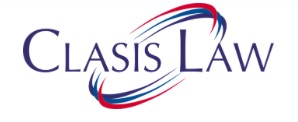3 April, 2020
The Division Bench of the Bombay High Court, in its judgment pronounced on 7 February 2020 in Narendra, Proprietor of M/s Mata Sherawali Transport vs Balbir Singh (Criminal Application (Appa) No. 748 of 2018 has clarified that the prosecution of an accused under section 138 of the Negotiable Instruments Act, 1888 (“N.I. Act”) is not hit by the bar created by section 69 (2) of the Indian Partnership Act (“Partnership Act”).
In the present case, the Ld. Single Judge of the Bombay High Court was dealing with the question as to whether an unregistered firm can prosecute a case under the N,I, Act. Since its view deferred with that of a concurrent bench which had held such prosecution to be untenable, it referred the following question of law for the consideration of the Division Bench: “Whether prosecution of accused under section 138 of the Negotiable Instruments Act, 1888 is hit by the bar created by sub-section (2) of the section 69 of the Indian Partnership Act, 1932? In response to the aforementioned reference, the Division Bench opined that the object of introducing Sections 138 to 142 of the N.I. Act vide Amendment Act, 1998 was specifically to enhance the applicability of cheques in settlement of liabilities by making the drawer liable for penalties in case of bouncing of cheques due to insufficiency of funds in the accounts or for the reason that it exceeds the arrangement made by the drawer. The Court also upheld that section 138 of the N.I. Act is a penal provision, the commission of which entails prosecution and conviction on proving of guilt. Once the offence under section 138 is completed, the prosecution can be initiated for bringing the offender to penal liability. The Court observed that the ‘debt or other liability’ as has been referred in section 138 of the N.I. Act, is a ‘legally enforceable debt or other liability’. However, by creating a bar to enforce a right arising out of contract by an unregistered firm, with the object to promote registration of the firms and to exempt the small firms from compulsory registration, the inherent character of enforceability of the ‘right’ does not get changed and it would still remain as a right enforceable by law.
Once the bar is removed, the remedy would be revived. The Court further observed that even the plaintiff/unregistered firm can withdraw the suit with liberty to file a fresh one after getting the firm registered and section 14 of the Limitation Act, 1963 would be applicable to such proceedings. However, there is no provision in the Code of Criminal Procedure (“Cr.P.C.”) unlike Rule 1(3) of Order 23 of the Code of Civil Procedure (“CPC”), to withdraw the complaint with liberty to file it afresh after removal of formal defects. Further, section 14 of the Limitation Act,1963 would not be applicable to the complaint before the Criminal Courts as it is applicable only to the suits or the proceedings before the Civil Courts.
The Division Bench further opined that the term ‘suit’ under section 69(2) of the Partnership Act, must receive its plain and simple meaning. It cannot be stretched for securing immunity from criminal prosecutions. The bar under section 69(2) is liable to be confined only to contractual obligations. In addition, when a plaint is rejected being barred by section 69(2) of the Partnership Act, the same shall preclude the plaintiff from presenting a fresh plaint in respect of the same cause of action, in view of Order 7 Rule 13 of the CPC. Similar kind of provision is not available in N.I. Act not in Cr. P.C. Further, by way of simple endorsement the cheque can be negotiated in the name of any person or registered firm and in this way, the effect of bar can be neutralized by an unregistered firm and in such an eventuality, there won’t be a privity of contract between the drawer of the cheque and its holder. In light of the aforementioned reasons, the Division Bench answered the aforementioned question of law by holding that the prosecution of an accused under section 138 of the N.I. Act is not hit by the bar created by section 69 (2) of the Partnership Act. Therefore, by way of the present judgment, the Division Bench of the Bombay High Court has thus clarified that an unregistered firm can initiate prosecution under section 138 of the N.I. Act.
For further information, please contact:
Gaurav Wahie, Partner, Clasis Law
gaurav.wahie@clasislaw.com





